From Shanghai to Turin to Los Angeles, Jiaqi Wang's artistic journey has traveled the world...and she's just getting started
Imagine setting out into the world to pursue your art, with each step forward in your career taking you further from home. Freelance Motion Designer and artist Jiaqi Wang found her love of MoGraph while living in China. Art school gave her the foundation and skills, but her passion carried her thousands of miles away, first to Italy, and now to Los Angeles.

After studying Graphic Design in college, Jiaqi discovered that her real interests lay with more creative and artistic work. After traveling to Italy, Jiaqi worked with the amazing illo studio and honed her craft. After a quick stop in London, she came to sunny Los Angeles, interning with a small—relatively unknown—studio called Buck.
Jiaqi took the leap into freelance, calling upon all the lessons she'd learned during her journey around the world. She's refined her style into something truly special. Check out her incredible work on Flocabulary's "Rhyme."
Jiaqi has quite a story to tell, so stuff up that bean bag and grab a slice of the perfect pizza—we're jaw jabbing with Jiaqi Wang.
Show Notes
ARTISTS
STUDIOS
Scholar (Formally known as Gentleman Scholar)
PIECES
Yukai Du How small are we in the scale of the universe?
RESOURCES
University of The Arts London
London College of Communication
Transcript
Joey Korenman:
All right. Jiaqi, it is awesome to have you on the School of Motion Podcast. I have your website pulled up, I'm looking at some of your beautiful work, and I'm really honored to have you on, so thank you for doing this.
Jiaqi Wang:
Thank you for having me.
Joey Korenman:
It's my pleasure. For everyone listening, we're going to link to Jiaqi's portfolio, and it's awesome, you have to go look at it. She's worked with a lot of the big names in the industry, all the big shops, people you've heard of. What I thought was really, really interesting when Jiaqi came onto our radar was kind of digging into your history and learning about how you ended up in Los Angeles, sort of in the center of motion design, but you came all the way from China to London to Italy. You had this really crazy journey, so I want to dig into it.
Joey Korenman:
I think it'd be great to just start at the beginning. One of the things that I read about you was that your mom was actually, she put you in art school when you were really, really young. Maybe we could start there. What is the culture of art education in China? Is it similar to here, where most parents don't really want their kids to be artists, or is it different?
Jiaqi Wang:
I think it's a really different case. My mom is the person that support everything I'm going to do. The reason that she put me to the art school is kind of tricky because I'm not really good at academic study. Those type of language and math, I'm super bad at that. And she wanted me to have a higher education in the future, but the only way you can do that, you have really nice grade in China, but I can't really do that. Another way is like you go to the art high school, and we have that type of art high school in China.
Jiaqi Wang:
It's a lot, you basically do the art every day and you're studying the academic like math, language and science, that stuff, but it's not essential for your future, which is really fun to do that.
Joey Korenman:
It's very different, that's very different than here. That's interesting, yeah.
Jiaqi Wang:
When you go to higher education like college/university, you go to the past. Art has tests itself, and also those academic studies got that type of test, and they will mix your grade together. Then you go to another art school, probably it's not art school, probably it's a university, yeah.
Joey Korenman:
Tell me about the art test, so what is the test like that you have to take to get into art school there?
Jiaqi Wang:
Man, that is really complicated. If you search up "art test higher education", I don't know what's exactly the name you should search, but it's like "art test in China", it's really intense. Probably there are thousands of art students, while gathering together they do the same thing, and the judge which is from the college art school, they will pick up different types of watercolor, pencil sketch. Probably some schools will do design, but really they require your design skills, they only require the watercolor stuff.
Jiaqi Wang:
They would just look at your pencil sketch, watercolor to see if you have a good sense of color, good sense of body structure and shadow, lighting stuff. If they like it, they will give you a higher grade and you've probably got a first pass. The second pass is like academic.
Joey Korenman:
That's really, really fascinating. It's almost like taking here, if you want to go to college, typically you have to take a test called the SAT, and it's the same thing. You have hundreds of kids in a room taking the test, but as an art test, that's really interesting because it's so subjective. Are they trying to find young people that have technical ability, or are they looking for really just raw talent, "Oh, I think this is beautiful, I picked this person"? It feels like it could be kind of random.
Jiaqi Wang:
Yeah, it's kind of random. It's a little bit, the part it's like I really hate that because they're saying like they have a different art school from south and the north, and they tend to have different trendy or style that they like. If you want to go to school in the north, probably like capital, Beijing, you need to train yourself into those really hardcore pencil sketches, like really sharp black and white stuff, but if you want to go to the south which is like Shanghai or Guangzhou, those type of cities, you probably will go to really soft color, soft pencil like that, so you need to pick which team you want to send up.
Joey Korenman:
That's funny.
Jiaqi Wang:
Some kids will, during the summer, they will go to those art camps. Basically, you just go into a room and draw every day, eight hours per day.
Joey Korenman:
Oh wow. I think that here in the United States, there is definitely a bit of a stereotype when it comes to the education system in places like China and Japan, famously like the school day is longer and things like that. I always wondered, A, if it's true, but B, if it's true in creative education as well. It sounds like if you get picked and you are going to be an artist, they kick your ass and they really train you to be an artist.
Jiaqi Wang:
For me, if you go to art school in China, it's not like you become an artist, to be honest. They really require you have a solid traditional arts background and those type of skills, it's not like I know people are looking at your portfolio here. They're trying to, searching, like you are really creative in some way, but we are not, we probably have SAT stuff in art.
Joey Korenman:
Right, yeah, got it. Okay, so it's a lot more about the fundamentals than here, especially because of the cost of education here, I think a lot of schools focus a lot on getting you ready to have a job, to be a professional, and so maybe that's one of the differences. Let's talk about in the United States, there used to be this feeling I think just in general that if you wanted to be a professional artist, then you'd better be ready to make no money and to be starving, and it's a terrible life.
Joey Korenman:
That's definitely changing, I think a lot of people now recognize that artists are really highly paid in some cases, it's a really great career. When you were growing up, what was it like in China? Was it considered a valid career to be an artist, or were artists kind of seen as these weirdos that they just want to paint all day, or something like that?
Jiaqi Wang:
I think probably if it's not like you become a professional illustrator, you didn't really show your family you can do that, they will think you're going to starve. My mom also had that type of worry where it was the end of college, she was like, "Am I going to raise a starving artist in the future?" I was like, "Don't worry, this is not ..." Also, I was in college studying graphic design, which just gave her a better sense it's not really artist-artist stuff, it's going to [crosstalk 00:08:47].
Joey Korenman:
That's funny, right. You'll get a job at least. Was your mom kind of rare in that way, in that she seems like she was very supportive of you wanting to pursue art? Was that uncommon, or were lots of Chinese moms when you were growing up cool with that?
Jiaqi Wang:
I don't know, because my high school was like art school, basically everyone was supported in a way. I heard some people probably don't really support if you're going to choose the art. Art school for the high school part, probably people just think it's a shortcut to higher education, because they don't really require you to have a really high Chinese SAT grade, which is great. Not everyone can study that hard.
Joey Korenman:
Right, so the perception is that it's easier than going to a real school, where you have to ... Yeah, I got it, okay. I think it's a little bit, there's probably a similar thing here, so it's really interesting though. You're growing up in China, you go to an art high school, and then you go to university and you get a degree in art?
Jiaqi Wang:
Yeah.
Joey Korenman:
You talked a little bit already about how in China you were really learning the principles of art, and it wasn't as focused on, "And now here's how you set your portfolio up, and here's how you get a job," and stuff like that. What was it like at the end of that stage, where you finished your degree, what happened next?
Jiaqi Wang:
In my university, I didn't really think that much. Basically, I just followed whatever my professor gave me to do, and my course was really intense, actually. I know it's not like every school teaches you technical skill, like Photoshop, Illustrator, After Effects, those type of stuff, but our course requires everything from Adobe. They teach me how to do that stuff, I feel like I had solid skill. I think in that third year of my college, there's an exchanging program which is really great.
Jiaqi Wang:
I had a chance to go do the exchange student in Netherlands, that is my first time studying abroad, which is really nervous. I don't know how to speak English that well, but which has opened my eyes to every single graphic, like what is motion, what is illustration for me? Yeah, while back to school, I did my graduation show which is really funny and amazing, but I didn't really show everywhere because I know you just feel like that is shit.
Joey Korenman:
That's standard, like anything that you did more than two years ago you can't even look at.
Jiaqi Wang:
I used that, I didn't really apply for a job right away because I don't really know what to do, that's why I applied for post-graduating in London. I did do some internship in Shanghai because my school was in Shanghai, some really small studio doing interaction installation stuff, and they needed some interface animation, like UI/UX stuff. What I did for my internship, and they got a really nice client, Northface and Nike, so I got a chance to do this interface UI/UX animation, which has polished my skill, as a case.
Joey Korenman:
Yeah, as soon as you go from school to working for Nike or Northface, then you learn really quickly what it's actually like to do this professionally. I don't know how much insight you have into this, because as far as I know you haven't lived in China for awhile, but what is the motion design industry like there compared to here? Because it seems like China's economy has grown so fast and it's always on the cutting edge, so there must be a ton of awesome work that's being done there, but I'm guessing because of the language barrier you almost never see it here. Chinese motion design rarely gets featured on websites here, and so you just don't know that it exists, but I assume there must be a lot of it.
Jiaqi Wang:
From what I know, there is loads actually. There's some part of things that I don't really want to show from the Chinese market, because they tended to copy some part of art from probably another country. That's why they probably have a really bad-
Joey Korenman:
Like reputation or something?
Jiaqi Wang:
Yeah, a reputation for when you go to the commercial, you feel like, "Oh, that shot, I saw that before, I know where they copied," that type of feeling.
Joey Korenman:
That's interesting. Is that part of the culture of studios and the people running things there, where it's obviously easier and cheaper to just copy something you like than to try to come up with something new?
Jiaqi Wang:
I don't know.
Joey Korenman:
Do you think that that's why that happens?
Jiaqi Wang:
I think they must, like I know my friend also running a small studio, they do everything originally, but it's really weird, those big agencies, they tend to copy things. I don't know why, probably it's just like why you become an independent studio, like not related to big agencies, you have more freedom. Agencies when they work to the client which is mostly, for example, it's Chinese area branding market, they work for the Chinese market and the client, also from China, they put references from the public on Behance, on Instagram where they saw other countries' artists doing that. Yeah, they probably just follow references because it's what a client wants.
Joey Korenman:
All right, so let's move on in your story. You eventually moved to London to get a master's degree. Can you talk a little bit about, why did you go get a master's degree, and why London? What was it like there?
Jiaqi Wang:
I think because I'm lazy to study another language, like my-
Joey Korenman:
That's funny, that's legit.
Jiaqi Wang:
Yes. My first choice is go to a country that speaks English, I don't really want to spend the time to speak another language, and also I love Europe. When I did exchanging student, and during that almost half year, I didn't really study that much, I just traveled a lot. I think Europe is the way to go, and London seems really elegant and legit, and I just [crosstalk 00:16:43]-
Joey Korenman:
And fun, yeah. That's great. Okay, so while you're in school there, what were you really learning and working on in your program there?
Jiaqi Wang:
Fun fact, I didn't really apply for animation, but ended up being in the animation program. I don't know if you know that they have a university called University Art of London, and they have a different academic college underneath [inaudible 00:17:21], and my school called London College of Communication. When I searched up, they had a really nice reputation on graphic design and screenprint, those type of stuff, and this which I really wanted to learn at the beginning.
Jiaqi Wang:
My portfolio, I don't know why it's all about animation, probably it's [inaudible 00:17:50]. They needed a portfolio, and I just sent it to them, and then they just contacted me after like one month. Actually, I sent a loaded portfolio including in the United States, like SVA, those type of school. My mind was like, "I bet there's no one that wants to give me an offer. Which one comes first, I'm going to go." LCC, which is my school, they came first, they said, "We saw your portfolio, and we feel like you're more suited for our animation program. Do you want to exchange to that? I can just do the interview right after you say yes." I felt like, "Oh, animation, I never heard about that. Yeah, let's just go for that, I guess." Yeah, that's how I-
Joey Korenman:
Perfect. What kind of animation were you learning there, was it traditional animation or were you using After Effects and doing motion design stuff?
Jiaqi Wang:
The program is actually new. Our tutor which is called [Slieder 00:18:59], she's the type of lady that really focuses on narrative, experimenting and training you to become a really nice director. All my classmates have different types of style, some people were doing really traditional animation frame-by-frame, that type of thing, and some people were like me doing After Effects stuff. They didn't really require what type of style you are doing, but what you learn is how you become a really nice director.
Jiaqi Wang:
She worked for the industry quite long and she is still working for the industry, which is not like commercially, there's independent film festival stuff. I learned a lot about animation film festivals.
Joey Korenman:
Interesting. One of the interviews that I found with you prepping for this, you were quoted, and I don't know when the interview was, it was a few years ago I think, but you said that after you graduated from that program, you were trying to find a job in London but you found it very hard, because I think you said you were a newbie in this big city of London and it was hard. I'm wondering if you could talk about that a little bit, because I would assume that London, like LA or New York, there's a lot going on, shouldn't someone who ... Clearly, you have a lot of talent, and I don't know what your work looked like then, but your work now is amazing, so why was it hard for you to find work in London?
Jiaqi Wang:
I think it's probably I'm just a newbie. When I graduated, it was a really sad year, it's Brexit, like ever since it went down for a certain point, and I was trying to get some interviews. What I did is sent a bunch of emails to the studios I liked, most of them replied to me, actually, like at least 70%. The thing is, they are all really small and independent studios. I think I graduated a couple years ago, like [inaudible 00:21:23] Animade which is a really big name right now, but it's really small at that time, so I don't know, they can't really give you certain working visa stuff, so I can't really work legit which is really a bummer.
Jiaqi Wang:
I just got some interviews, that's it, and I realized those people doing freelancing, I saw artists working for the studio, I thought they are staffing the studio, but actually they're freelancing, which is why doing research for a studio, I know what freelancing means.
Joey Korenman:
Okay, so you started to notice that. Just a sneak peek for everybody, so you are a freelance now, but that was when you were sort of exposed to that idea. Then after London, you end up working with our dear friends at illo in Italy. How did you end up moving from China to London to Italy with a little stop in the Netherlands, how did that opportunity pop up?
Jiaqi Wang:
I never thought it's going to happen that time. While I was sending the emails, I did probably five small looping animations for each studio. It's not each studio, it's actually just an animation for my job applying, so everyone would receive the same email, including illo. In the email, saying like, "I love you guys' work," and there is a small looping animation. "When I saw your work, my heart was bumping," there's a small animation in the email."
Jiaqi Wang:
Illo got that, and they didn't really hire people at that time. I just wanted to give it a shot, and I didn't really think it's going to happen, and they replied to me, surprisingly. I was like, "Oh hey, they want to do an interview?" We did an interview, I was like, "Okay, they're going to ask me about a visa again, because that's how they start." It was like, "How's your visa situation?" I was like, "Damn, here again?" I don't know, I just told them the truth and they said that they can't help me. Yeah, it's really excited. They helped me out on the visa stuff, I just go there right after I graduated, like half a year.
Joey Korenman:
Jiaqi, I want to take a minute, because I'm guessing about half the people listening to this will never have to worry about getting a work visa, and I've met a lot of artists and I've actually helped artists get visas to work in the US, and it's a really frustrating system, and I don't know how it works in other countries but in the United States it's just, to be frank, it's a pain in the ass. Can you talk a little bit about, what do you mean, "You have to get a visa"? Because I think there's probably people listening that don't even really understand why you need something called a visa, so what is a visa, and why do you need one to go work for illo?
Jiaqi Wang:
Let's take a visa as a validation that you can work legally in different countries, and different countries got different policy. I moved a lot, I know UK got their rules, another EU country got their rules, and the States got another type of thing going on, so you need to know their policy. You can't really just go to the country, say, "Hey, I want to work for you," you need to know there's a legal situation here.
Joey Korenman:
What I've seen in the United States, the two situations I typically see is if you come from another country and you want to work here, either the company that wants to hire you has to sponsor you and essentially pay to get you a visa, and that visa allows you to work for that company. One of the issues that I've seen firsthand with that is that then that artist or that person who works there, if they leave that company, they lose their visa. Am I right?
Jiaqi Wang:
Yeah.
Joey Korenman:
The better situation is there's a special kind of visa, and I can't remember the exact term, but if you can prove that you are-
Jiaqi Wang:
Outstanding.
Joey Korenman:
An outstanding talent, yes, [crosstalk 00:26:08] then you can get a more general visa, yeah. That's the visa that you have currently?
Jiaqi Wang:
Yeah.
Joey Korenman:
Good, okay, awesome. I'm glad you got it, because a lot of people try and don't get it and it's hard, and I know you have to have people write letters, and it's painful. Thank you for talking about that, because I think that's a thing that, most Americans will never brush up against this, and so I think it's good to know that everybody who comes here to work in LA or New York from other countries, they have to deal with this really painful, annoying thing.
Joey Korenman:
One thing I wanted to ask you, so first of all, every time I talk to someone who English is not their first language ... I only speak English. I feel just lame and lazy and slacker and I'm a typical American, I only speak one language. You learned English at some point, and you've lived in China and London and Italy and the Netherlands. I've learned a little bit of Spanish, I've learned a little bit of French, and those languages are close to English. I'm imagining Chinese is nothing like English, it's got to be a lot harder to go back and forth.
Joey Korenman:
I'm just curious, obviously you had to learn English at some point to be able to work in these countries, what was that like? Was that a challenge? Has the language barrier ever been a blocker for you?
Jiaqi Wang:
I think, yes. That early stage, we learn English when I was in China majorly from elementary school to your higher education, they all contain English courses, but that is not enough to have a really nice conversation when you really talk to a native. It's just like you know certain words, and when you speak that out loud, you realize, "Oh damn, what is that, what I'm talking about?" When I was first time doing a presentation, I remember in front of the whole class in Netherlands, I kind of wanted to cry because I don't know what to say, but nicely, there is a Danish girl, she came up and helped me, but after that I was like, "Damn, I need to speak really nice English in the future, otherwise I can't even talk."
Joey Korenman:
That's got to be so hard. Also too, so I've been to the Netherlands and I have a bunch of Dutch friends actually, and when you go there everybody speaks wonderful English in the Netherlands, like everybody does, but they have a Dutch accent. Some of the words don't really sound the same, and so if English is your first language, that's not a big deal, you can understand everybody, but I can't imagine if I was learning Chinese but then I went to Holland and I heard Chinese being spoken with a Dutch accent if I'd be able to understand it. It's even more impressive that you've been able to navigate. Let's get back to Italy, so what was it like working at illo? What were you doing there? What was it like living in Italy?
Jiaqi Wang:
The life in Italy is nice, the food is so good.
Joey Korenman:
I've heard.
Jiaqi Wang:
I love illo too, they are so cute, they are so warm, everything is so good. I thought of ending up in illo forever, but I just can't really deal with the homesick and the language thing, but they don't really speak English and they are so slick with Italian. They were really happy that I was in the studio by that time, they said, "Oh, everyone can speak English now." They speak nice English, but I don't know, like after three months people suddenly let me go to the Italian language school, and trying to let me speak some part of Italian I guess, which is nice, but I can't really deal with adding that.
Joey Korenman:
Yeah, that's a lot.
Jiaqi Wang:
Yeah, and I don't really mind people don't really speak English to me. I was like, "Yeah, let's just try to learn another language," and I thought I was going to have more years in this country, but I realized if you go to outside the studio on the street or you are trying to make a friend at a party, they don't really speak English at all, and I was like, "Oh, it's so hard to make friends here." I don't really have any friend who is living in Italy, I think. Basically, my life is go to the studio, go home. The city is really small, at half a year I was like, "I miss home so much."
Joey Korenman:
In between going to London, going to Italy, were you going back to China at all, or were you just going from country to country?
Jiaqi Wang:
I didn't really go back to China, because the thing is about those travel and visas, that was hard to deal with. I think I go back to China, back home to visit my family for short term, but I didn't really stay for really longterm.
Joey Korenman:
Got it. Were you ever thinking, "One day, I'm going to go back to China and be around my family and live there," or were you always thinking, "I'm going to live somewhere else and start a life in a different country"?
Jiaqi Wang:
I never think about that, to be honest. My mom is really worried and sick about I'm moving around too much, every time I move to a new country she's just like, "Are you going to stay there forever, or are you going to move to another country again?" I say, "No, I don't know, mom."
Joey Korenman:
That's just a very mom thing to worry about, I get it.
Jiaqi Wang:
She just feels like I'm not stable at all.
Joey Korenman:
You're bringing up a really interesting point, and again, this is just something that in the US, it's such a big country, there's so many different things to do that you never really have to worry about the language barrier. That's a thing that as a professional, you could imagine moving to another country, learning the language well enough to operate professionally, but how do you make friends if you already speak Chinese and English and now you're going to have to learn Italian if you want to stay there?
Joey Korenman:
It does seem like a big challenge, and I'm wondering, the people that you grew up with and your friends from art school back in China, what did most of them do? Are they doing what you're doing and moving around the world, or did most of them stay in China and start their careers there?
Jiaqi Wang:
I think most of my friends I know traveled in ... I forgot to mention one thing. I know my starting point for my career probably is another Chinese friend, and you probably know her name. She's a really big artist, her name is Yukai Du.
Joey Korenman:
Oh yeah.
Jiaqi Wang:
Yeah, she's really big, and she's helped me a lot. She's kind of an industry mentor for me, but I don't know if she knows that. When I arrived in London, my first job actually she gave to me. She was animating something for the TED Ed stuff, and she saw my work and she trusted me to do animation parts for her, which is like starting point. She is really one of my friends who stuck in the EU, Europe, and most of my friends I know from London and also some of my classmates, they're all back to their country. Yeah, most of my friends back to China, they didn't really stay here.
Joey Korenman:
It's really very admirable, Jiaqi, that you've managed to go so far away from where you grew up and kind of set roots down, it's definitely not easy to do.
Jiaqi Wang:
I know, it's the bravest thing.
Joey Korenman:
You are very brave. Okay, so let's talk about now where you live, which is in sunny Los Angeles. Now, I know you ended up getting, and correct me, was it a job or an internship at Buck?
Jiaqi Wang:
It's an internship.
Joey Korenman:
What's the story behind that? How did you end up getting that internship and deciding, "All right, now I'm going to get on a really long plane flight and go to LA"?
Jiaqi Wang:
It's quite a long story. After illo ... [crosstalk 00:35:27] I learned so much from illo, to be honest, like from the animation skill and illustration. The fun thing is, I was mainly doing animation stuff in illo's studio. When I applied to Buck, which is after illo, I moved back to London because there's a job interview in London. They contacted me from email, and I moved back to London for that interview, but it didn't really go well because the company was really tech, and what they wanted me to do, it's not like illustrated stuff, it's really UI/UX and technology stuff, which I don't really like.
Jiaqi Wang:
I just go to the interview, talk about that, and it was like when I was going out, the company was like, "Damn, I'm going to go home, like home-home." That night I was like, "Things aren't going to go home, just give it another try for another country," that's what I was thinking.
Joey Korenman:
Yeah, why not?
Jiaqi Wang:
Buck is always a big dream for everyone, including me, so I applied for Buck. You know their website, by that time you can choose the location where you want to leave and where you want to work, Sydney, New York or LA; I chose for everything. I didn't really think that much, and I didn't really give any hope on that email, so I sent and I go to sleep. When I wake up, there's a single-line email in my box. I open that, it's from the New York producer. I was like, "Oh my God," and literally just staring at my phone for 10 minutes, didn't really say anything, and just screamed afterwards.
Joey Korenman:
It's like you got into Harvard or something.
Jiaqi Wang:
Yeah, I know, and for me it's a really big dream. What she asked is really basic information, they didn't really say anything yet, it's just information stuff. In the end, LA interviewed me, they said that they want to put a team together for some project and that they like my work, and I thought like, "I'm going to do the animation in Buck," which has really surprised when I arrived here. I never did think of animation for Buck, it's all illustration.
Joey Korenman:
Now, why is that? Is that just because Buck is such a big company that basically it's easier for them to have people specialize?
Jiaqi Wang:
I don't know. It's probably they don't even know I can do animation, it's so weird. I ended up into LA where I got the offer, and I fly to LA [inaudible 00:38:37] between the interview and the flight, there is a long process for, again, working visa stuff. I wait at home, like I work freelancing in Shanghai for like less than half a year, which is great. I moved to LA and I arrived at Buck, I thought it's going to first job, it's going to be like animating something, but it's not. It's just illustration, which is weird.
Joey Korenman:
Was it illustration just for an illustration project, or were you illustrating elements that you gave to an animator, and then they animated them?
Jiaqi Wang:
It's just for the project. When I was first three months, almost four months I guess, I was put into the Facebook team that Buck has, because they are doing a really nice, really specific illustration guide for Facebook by that time. I was mainly working on that, and my ad director was Amelia, and she's really great as well. Yeah, basically I'm just working for the Facebook team and the illustration sketch. Nothing is really animated yet, almost everything is concept.
Joey Korenman:
Got it, okay. I think a lot of people listening ... You said like everyone wants to work at Buck at some point, it's like the top of the mountain, and so what was the actual experience of working there like? I've never worked at Buck, so in my mind, you walk in and you're just surrounded by the most creative people in the world, and just everyone's super talented and every place you look there's just something beautiful on a computer screen.
Joey Korenman:
Of course, I know it's also a business and it's a job and boring stuff has to happen there too, so maybe you could just describe, what was it like when you got there, and actually working there?
Jiaqi Wang:
Mind blow, I guess.
Joey Korenman:
Perfect, I love it.
Jiaqi Wang:
It's totally different from illo, and you know illo is a really small team.
Joey Korenman:
Right, yeah, they're much smaller.
Jiaqi Wang:
And Ilenia and Luca were major minds in the company, and what you do is just following them. When I arrived at Buck, I don't even know who I should talk to. It's just like reception, to your desk, and there is someone to talk to you which is your art director. During lunch there is probably 100 people surrounding you, basically it's shocked. It's really nice that you can just see people's screen, sneak peek what they're doing, which everyone's doing great.
Joey Korenman:
What are some of the things that you learned working there?
Jiaqi Wang:
I think, because like I mentioned before, I only do animation in illo, when I arrived at Buck it's like major really specific illustration guide and teaching how to draw the arm, how to draw the finger, hand, gesture stuff. I learned actually illustration and graduated from Buck, I learned a lot, the principle of the design-
Joey Korenman:
That's great.
Jiaqi Wang:
Staff in Buck.
Joey Korenman:
That's really funny, someone told me once that when you get to a certain point in your career, instead of paying people to teach you things, you get paid for people to teach you things. It kind of sounds like that's what happened.
Jiaqi Wang:
That's true. I learned how you do nice key frames and a good eye for animation from illo, and learned principle from Buck, which is really nice.
Joey Korenman:
That's great. You got to Buck and you were an intern there, so at any point did that turn into a full time job, or were you just sort of freelancing there after awhile?
Jiaqi Wang:
No, I'm just freelancing over there after awhile, I didn't really get the staff and they didn't really talk about that, they didn't really come to me. I was like, "Nah, nevermind, I'm not that good, I'll just do my thing."
Joey Korenman:
Got it, okay. Then at that point you're still in LA, and you're like, "Okay, I need to make money, so I'm going to freelance." How did you get started freelancing? You said you had freelanced in Shanghai so you had some experience with it. How did you start getting new clients? How did you get your name out there?
Jiaqi Wang:
Man, it's a totally different situation from States and China. I don't even know how I started in China, I didn't really do any reaching out or work for any big company before, and people just started reaching me out from personal contacts, it really surprised. I did some big projects with big agencies in China, including Starbucks; I'm super lucky to get into that team though. When you've got a nice portfolio and you it put on your website and people start noticing you, and also when they check your location, you were in LA ... I think I got the first freelancing [inaudible 00:44:22] by Gentleman Scholar, or I don't really remember how it started. It's just like the email kind of thing, I said, "Yeah, I have time," and give them the rate and you just go to there to work, which just naturally happened.
Joey Korenman:
At any point were you sending emails out and introducing yourself and going to visit the studio, or were people just finding your portfolio and emailing you?
Jiaqi Wang:
Actually, what happened after Buck is, because I left Buck, I needed to switch the visa stuff, damn visas again, so again, I'm waiting for that thing probably three to four months, but you can't really leave this country. What you can do is just stay and wait, and you can even work, but I'm lucky that I got some Chinese clients, I can just still work on my stuff. Things are getting really slow and a little bit boring for like two months.
Jiaqi Wang:
My friend, which probably we're going to talk about later, my boyfriend is also a really talented freelancing illustrator in this industry, and he's just jumping to studio to studio and he knows everything about freelancing. He talked to me like, "Oh, do you know what is a hold? Do you know what is day rate?" that type of stuff. I learned a lot, and it's a totally different situation from you're going to freelancing for the client or you're going to go to the studio.
Joey Korenman:
That's right, it's always helpful to have a boyfriend that knows all the-
Jiaqi Wang:
Yeah, I know.
Joey Korenman:
That's awesome. It sounds like it's interesting because I talk about freelancing a lot, and there really does seem to be two different experiences. One is for artists like you, and your boyfriend Kevin is amazing, he's really, really talented also, when you have that level of work and your portfolio has these beautiful things in it for Google and brands like that, it seems like especially with how popular Instagram has gotten and Behance and Dribbble, you can just put your work out there on those platforms and get plenty of work now, but you have to be that good.
Joey Korenman:
For the rest of us mortals, we have to do a little bit more work, and there's still plenty of work to do. Every time someone comes on the podcast and they say like, "Yeah, I don't really do anything, people just contact me," I want to just call out that that's not the experience everyone will have in this industry, and it is important I think still to do outreach and things like that. If you have Jiaqi's portfolio, you don't really have to do much. When you're good, you're good.
Jiaqi Wang:
Oh no, [inaudible 00:47:34] like that. I have really downtime as well.
Joey Korenman:
That's what I wanted to ask you about too. You've got your own portfolio and Kevin has his own portfolio, and we'll link to Kevin's too, and then you've got this link on your site called Have A Drink. When you go to it, it's an art animation collective studio by Jiaqi and Kevin, and it's got just awesome work on it. How does that work, having your own freelance brand, Kevin has his freelance brand, and then together you have this Have A Drink brand? How do you balance those three things?
Jiaqi Wang:
You don't need to have balance, I guess.
Joey Korenman:
Bravo, I like that answer. I love that answer.
Jiaqi Wang:
What we do, we do our own freelancing in different stuff, and on certain points I just go directly to the client and he is still working for the studio. One time, what I did is the client reached me out for music animation stuff, and I couldn't really do it by myself, it's damned too much and the budget is not that great. I can't really call other friends, but I really wanted to do it, it's kind of a passion project for me. He just gave me help, was like, "Oh, I can help you on design."
Jiaqi Wang:
What we did is just like we did the first music video, and the client wanted a second one. The client is The Vocabulary, they do kind of a hip-hop sound for kindergarten kids to learn some English like that, which is nice. I feel like it's a certain point I want to develop my own style and how I animate as well, so we worked on these two project and were wondering, "What if we had a collective? Sometimes probably we don't really work at all, we're just working out our own shit, and what if something happened and we could just pull up a team?" Yeah, that's how it happened.
Joey Korenman:
You mentioned that you have downtime, which is good and that's something that I know that every freelancer listening to this probably thinks it's crazy to think of downtime as good, because downtime as a freelancer means you're not getting paid anything, and so it really can be scary. But if you want to progress in your career, it seems like the secret is you have to do personal projects, or as you call it, you've got to do your own shit.
Joey Korenman:
How do you balance that? Like because I've talked to some freelancers that are very, very disciplined about it, like we had [G-Muck 00:50:31] on the podcast awhile ago and he's incredibly disciplined about this. He blocks out time where he turns down client work and he's like, "Nope, I'm doing a personal project." Do you do it that way, or do you just try to fit things in when you're not booked?
Jiaqi Wang:
I fit things into the time I didn't really book. I think personal projects are a really big help and really important, because when you work a lot, you've kind of lost the soul why you are really into this industry, this is what I'm feeling. When you got downtime, don't really get panicked. I had three to four months, couldn't really work, that's how I started really studying my own style or developing what you'd really want to draw.
Jiaqi Wang:
During that time I'd be just be observing, probably you don't even have a plan, just draw from the heart I guess. That's really big words, but just try that out. I didn't really think something's going to happen to whatever I did, those personal projects. I did a load of shot film by myself as well, but I didn't really do anything for that, I just posted it online to see what is happening later. I did some illustration last year when I'm having let's call that downtime, and you can't really work yet, so let's call that personal project, because I was trying to calm myself down and tell myself, "Everything will be okay, just do this thing that you really like."
Jiaqi Wang:
When I draw that, I feel like I'm really into illustration. I posted it on Behance, that is my first feature on Behance. I was like, "Oh my gosh, is this really happening to me?" Personal projects work out, so I feel like it's really important.
Joey Korenman:
That's a very common story, and it's never something you can predict. You make something because you want to and it almost seems like it works backwards, if you design something hoping that it gets noticed, it won't.
Jiaqi Wang:
Yeah, I know.
Joey Korenman:
If you just make something and you don't care, that's when it actually gets noticed. Speaking of getting noticed, the way that this podcast episode came about was your illustration rep reached out to us-
Jiaqi Wang:
Oh, really?
Joey Korenman:
And said, "Oh yeah, we've got these amazing artists, maybe some of them would be good for your podcast," and you jumped out immediately. Now you also have representation for your illustration stuff, so maybe you could just talk a little bit about that. How did you get repped? The name of Jiaqi's rep is Closer and Closer, we'll link to them, they have a lot of artists, a bunch of whom work in this industry too, including Colin Hesterly who's coming on the podcast in a little bit. How did you end up getting repped by them, and what has that been like?
Jiaqi Wang:
That is in my dream, actually. They reached me out, I was surprised again, and I didn't really know what the agency was for and they represented for, but I heard about that and some of my friends also repped by other agencies. I asked around, "What's the feeling?" No offense, they didn't really give a shit about that, they'd just say, "They probably will do their promotion and they just show your work," they didn't really get that much attention from the client directly.
Jiaqi Wang:
What they do, they're still doing their work, they still promote themselves, but the client didn't really come in from the rep there regularly. I was like, "Okay, but you've got a free promote, why not?" I signed for Closer and Closer for this reason. I didn't really expect anything will happen, and after like one week or shorter than one week, they sent me an email with like, "The client wants to work for you," and I didn't really-
Joey Korenman:
That's so great.
Jiaqi Wang:
Yeah, I was like, "What is happening now?" That is my first time working with them, which they are so good. I realized what I charged before is really low, and they just hired my value, which as I got more confident, and to be honest still right now, I feel like every new project is really a challenge for me and I got nerves when everything got started, but which they pushed me. They gave me loads of amazing projects and they [highered 00:55:48] your rate, which is really great and nice.
Joey Korenman:
You live in Los Angeles, it's not a cheap place to live, so that's good.
Jiaqi Wang:
Yeah, but it's better than London though.
Joey Korenman:
Oh my gosh, yeah, that's true. One of the things that I really like hearing from you, Jiaqi, is I can hear it in your voice, you still have this, the term is impostor syndrome, but it's really like if someone goes to Closer and Closer, and they see your name and they click on your work and they scroll down, they are probably imagining some very confident artist that just knows herself and knows her work and never has doubt for one second because the work's amazing. It's good to know that almost nobody is like that.
Jiaqi Wang:
No, it's not.
Joey Korenman:
Even someone who's worked for Facebook, Starbucks, Buck, Gentleman Scholar, State Design and has a master's degree from the London College of Art, it's still there. No one really knows what they're doing, we're all faking it, right? Awesome.
Jiaqi Wang:
It's just like, to be honest, I need to remind myself every day what you're going to do today, and be confident. Otherwise, I think sometimes if you draw something less confident that you are not sure and you send it out, people will know that, just that feel.
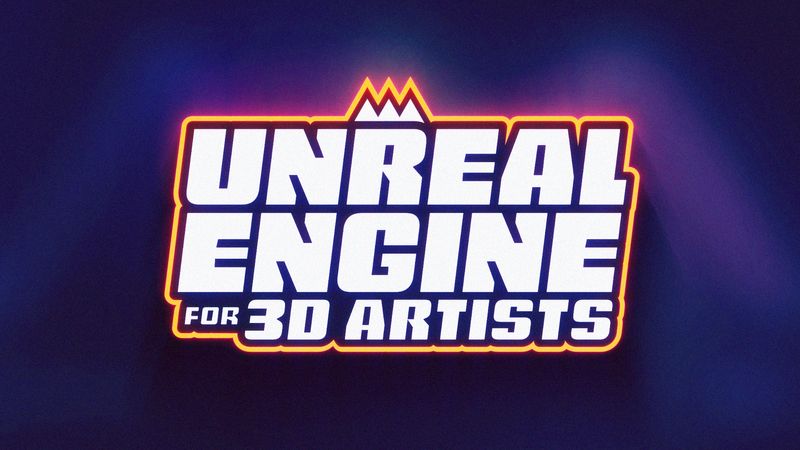
Dive into real-time 3D with our Unreal Engine beginner's course by Jonathan Winbush. Master importing assets, world-building, animation, and cinematic sequences to create stunning 3D renders in no time! Perfect for motion designers ready to level up.
Explore this Course ➔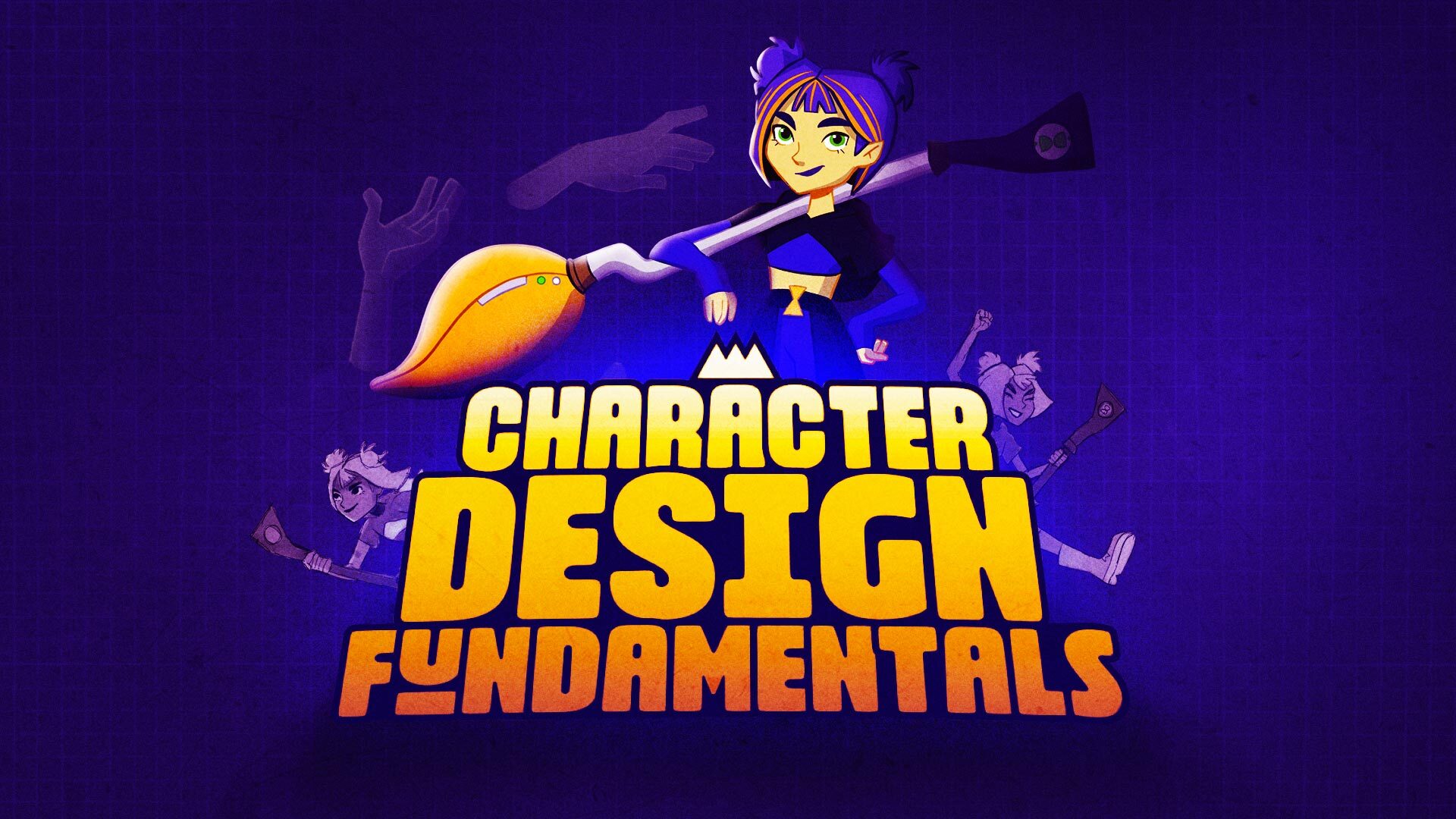
Unlock the secrets of character design in this dynamic course! Explore shape language, anatomy rules, and motifs to craft animation-ready characters. Gain drawing tips, hacks, and Procreate mastery (or any drawing app). Ideal for artists seeking to elevate their craft.
Explore this Course ➔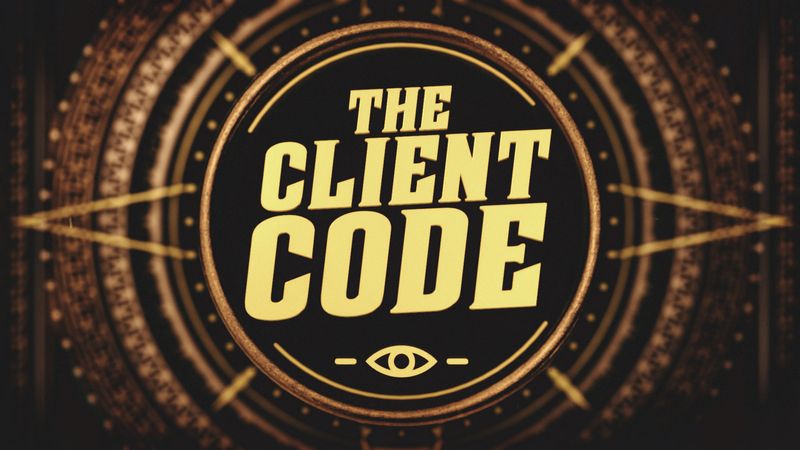
Elevate your freelance motion design career with our guide to client success. Master a repeatable method for finding, contacting, and landing clients. Learn to identify prospects, nurture leads, and develop a thriving freelance philosophy amidst chaos.
Explore this Course ➔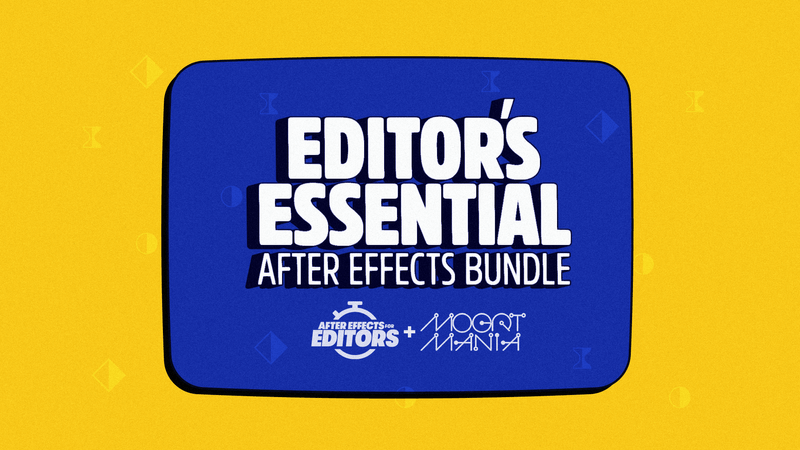
Rev up your editing skills with After Effects! Learn to use it for everyday needs and craft dynamic templates (Mogrts) for smarter teamwork. You'll master creating animated graphics, removing unwanted elements, tracking graphics, and making customizable templates.
Explore this Course ➔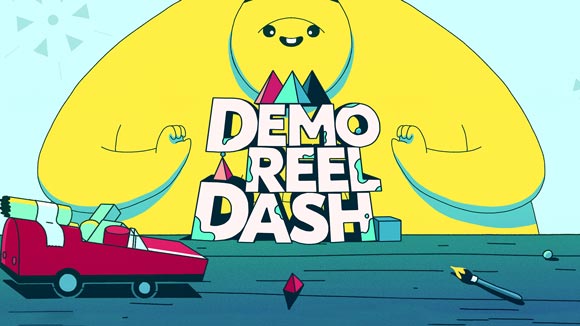
Stand out with Demo Reel Dash! Learn to spotlight your best work and market your unique brand of magic. By the end, you'll have a brand new demo reel and a custom campaign to showcase yourself to an audience aligned with your career goals.
Explore this Course ➔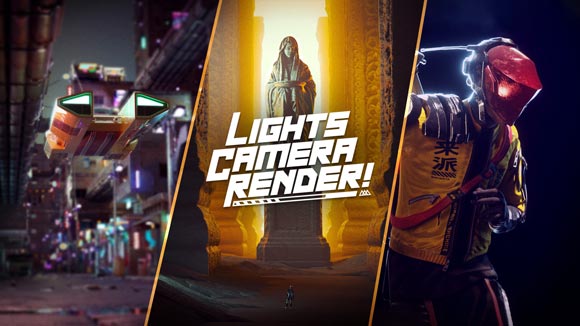
Illuminate your 3D skills with Lights, Camera, Render! Dive deep into advanced Cinema 4D techniques with David Ariew. Master core cinematography skills, gain valuable assets, and learn tools and best practices to create stunning work that wows clients.
Explore this Course ➔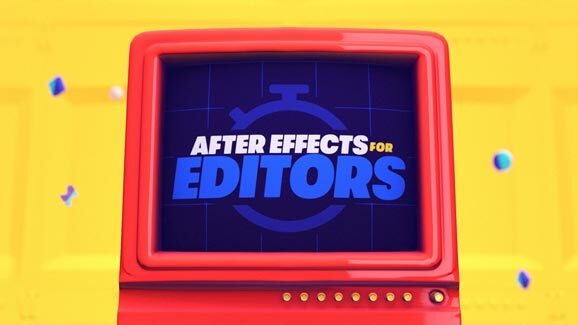
Master After Effects at your own pace with Jake Bartlett's beginner course. Perfect for video editors, you'll learn to create stylish animated graphics, remove unwanted elements, and track graphics into shots. By the end, you'll be equipped for everyday AE needs and more.
Explore this Course ➔
Revolutionize your Premiere workflow with customizable AE templates! Master creating dynamic Motion Graphics Templates (Mogrts) in After Effects to speed up your team's work. By the end, you'll craft easily-customizable templates for seamless use in Premiere Pro.
Explore this Course ➔
The freelancer’s guide to finding, booking, and keeping clients.
Drive your freelance motion design career to the next level with a repeatable method of finding, contacting, and landing clients. You’ll learn new ways of identifying prospects and nurturing leads, plus how to develop a freelance philosophy that keeps you thriving through chaos. See this system in action so you can implement it yourself!
Not sure where to start?
If you’re a beginner, here are some great courses to help you get started:
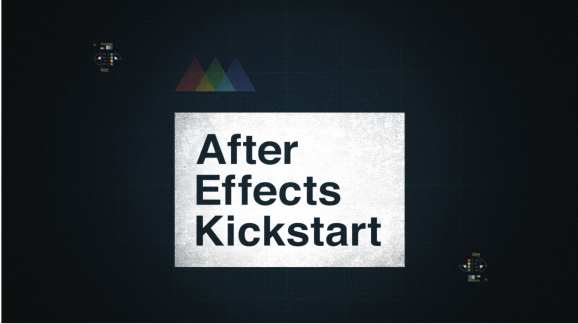
After Effects Kickstart
Dive into the fundamentals of motion design with our most popular (and recently updated) After Effects course.
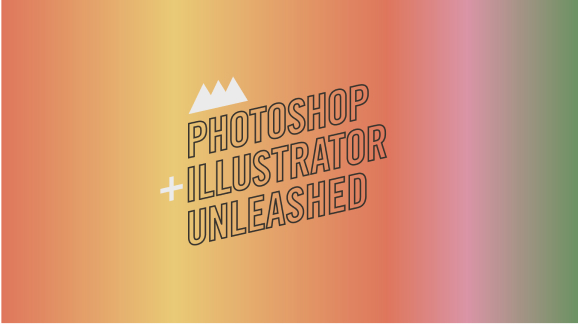
Photoshop + Illustrator Unleashed
Master the basics of Photoshop and Illustrator and gain invaluable insights in this introductory level course.
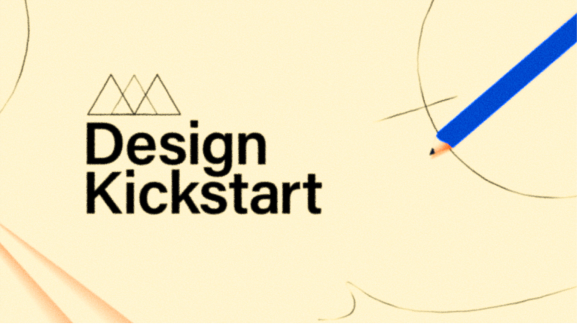
Design Kickstart
An introduction to the design principles behind all great work.
More Advanced?
If you’re a more advanced student looking to up your game, here are some great options:
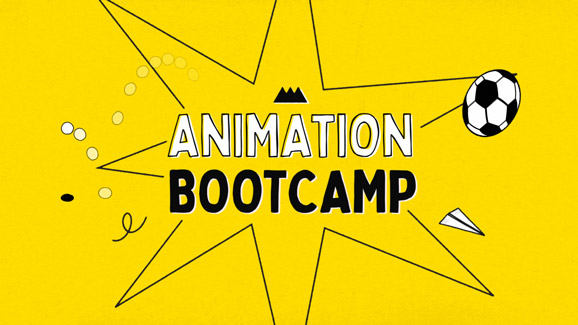
Animation Bootcamp
Learn the art and principles of creating beautiful movements in Adobe After Effects.

Design Bootcamp
Learn to design for motion in this intermediate-level, project-based course.
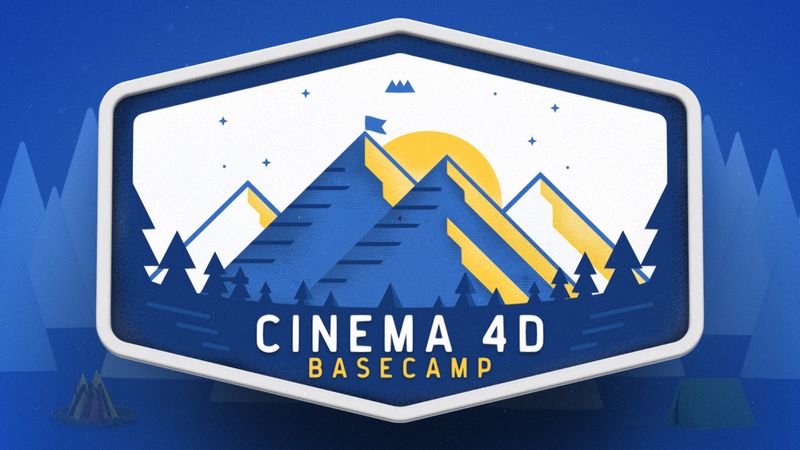
Cinema 4D Basecamp
Learn Cinema 4D from the ground up in this exciting introductory C4D course.
Now is the time to learn the skills you need to advance in your motion design career:











